This has been said many times in the past, but it’s always worth repeating: Buyers will go through the first half or more of their journey without you. According to research from Forrester, 67% of a buyer’s learning is made before engaging with a member of your sales team.
What this means is that you can’t wait until a customer has asked for a visit from a sales representative to start selling. You need to act before that and in a way that brings value by teaching the buyer something they didn’t know before.
Think about it. What do you remember most about a conversation? Do you remember hearing about stuff you already know? No, you remember what you heard that was new and applied directly to your interests.
Not only are you more likely to remember something new and of interest to your business, but you’re also more likely to share it and advocate for it because you think what you heard was of value.
Teaching Potential Customers
How can you go about teaching your potential customers new information related to their particular business before they ever contact you? How can you advance the buyer’s knowledge, so the buyer not only engages you but invites you back after the initial meeting?
You must be able to show buyers the economic benefits your solution brings to their specific business, and you must find a way to do it early in their journey.
There’s another reason for building your business case before customer engagement occurs. The number of people involved in the buying decision has grown to 6.8 individuals. You need to convince all these individuals, from across the company and with differing agendas, that your solution is the one they should approve.
That is a very big order, and it can’t be filled with sales collateral or general content. You must know better than the customers what the challenges of their industry are and the economic impact of their problems and your solution. Over 90% of companies state that they don’t have the resources to do this internally.
Understanding Prospects’ Challenges
You must help your prospective customers by clearly defining the problem and solution while guiding their journey to your doorstep.
If you can provide the right value selling tools to your prospective customers, you can give them more knowledge in a few minutes than all their online research can provide.
Value selling tools give buyers a way to define their problems more clearly and to fully understand not only the economic impact they have on their business, but how your solution can address that impact.
Consider this: A customer researching a solution to an ill-defined problem finds an assessment or value-calculating tool on your website or is sent one by marketing. The customer places company-specific parameters into the tool. The results relate directly to the customer.
You have now formed an impression with the customer because you taught them something they didn’t know: What their problems are and how they rank against peers, the cost of those problems, and how much your solution can mitigate the cost.
Highlighting Your Solution
If you provide the tools and set them up appropriately, the customer will also receive a better take on the problem and learn not just about a better solution, but about the best solution.
Your solution. The customer will have the beginnings of a detailed, highly credible business case supported by the customer’s own data. Furthermore, the buying committee will have better, more actionable information from you than from any other vendor, placing you at the top of their short list.
From there, additional value-selling tools can help your sales representative continue to build a customized business case that can answer the type of questions financial teams like to ask. According to CEB Global, a best practice insight and technology company, customer learning is the most important factor in winning high-quality deals.
Don’t just give your customers fishing poles. Teach them a better way to fish. To achieve true sales success, provide the tools that advance their knowledge of their problems and light the path back to you.















